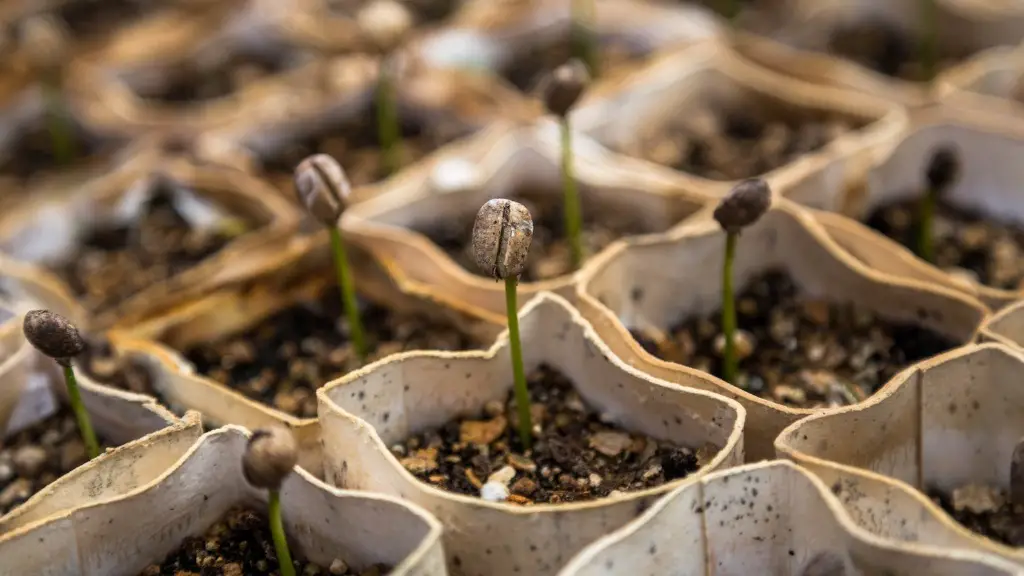Most people drink coffee with almost every meal, but does it really help with digestion? To answer this questions, let’s take a look at what science has to tell us. Coffee, as we all know, is full of antioxidants, vitamins, and minerals. It can also possibly help with digestive health. Studies suggest that drinking coffee after a meal helps to stimulate an increased secretion of digestive enzymes, which is necessary for proper digestion.
However, it’s important to note that too much coffee can have a negative effect on digestion. Drinking large amounts of coffee can cause acid reflux, which can be uncomfortable and lead to other health problems. Therefore, it’s important to find a balance when it comes to your coffee consumption.
What the experts say. Experts have mixed opinions when it comes to the effects of coffee on digestion. While some believe that coffee is beneficial for digestion, others have a different perspective. For example, Dr. Mark Hyman suggests that drinking coffee can actually lead to digestive issues, such as acid reflux. He believes coffee can cause inflammation in the stomach and intestines and should be avoided if you have a sensitive digestive system.
On the other hand, some nutritionists believe that coffee can be beneficial for digestion. They agree that coffee can help to increase the secretion of digestive enzymes and aid in the breaking down of food. In addition, they believe that coffee can also help to increase the absorption of certain micronutrients, such as iron, calcium, and magnesium.
My insights and analysis. Based on my own personal experience, I believe that coffee can be beneficial for digestion in some cases. I believe that drinking coffee after a meal can help to stimulate the secretion of digestive enzymes and aid in the breaking down of food. However, it is important to drink it in moderation and not overdo it, as too much coffee can have a negative effect on digestion.
The Effects of Caffeine on Digestion
Caffeine, which is found in coffee, is a stimulant that can also potentially have an effect on digestion. Studies suggest that drinking coffee after a meal can help to stimulate an increased secretion of digestive enzymes, which is necessary for proper digestion. In addition, caffeine has been found to have an effect on motility, which is the ability of the intestines to move food through the digestive system.
However, it’s important to note that too much caffeine can be harmful. Studies suggest that large amounts of caffeine can disrupt motility and lead to digestive issues, such as constipation and bloating. Therefore, it’s important to find a balance when it comes to caffeine consumption.
The Benefits of Decaffeinated Coffee
If you’re looking for a way to enjoy the benefits of coffee without the negative effects of caffeine, decaffeinated coffee may be the answer. Decaffeinated coffee still contains antioxidants, vitamins, and minerals, and studies suggest that it can still help to aid digestion. In addition, decaffeinated coffee has been found to have a positive effect on motility, and can help to reduce constipation and bloating.
In conclusion, drinking coffee after a meal may be beneficial for digestion, depending on the amount of caffeine consumed. If you choose to drink coffee, it’s important to find a balance, as too much caffeine can have a negative effect on digestion. Decaffeinated coffee may be a better option, as it can still offer the benefits of coffee without the risks associated with caffeine.
The Role of Lifestyle Habits In Digestive Health
Lifestyle habits also play a role in digestive health. Eating a balanced diet, getting enough rest, exercising regularly, and maintaining a healthy weight are all important factors that can help to promote good digestive health. In addition, avoiding foods that may trigger digestive issues, such as spicy foods or fatty foods, can also be beneficial.
It’s also important to consider stress levels, as stress can have a negative effect on digestion. Stress can affect the production of digestive enzymes, leading to digestive issues. Therefore, it’s important to make sure to manage stress levels, through activities such as yoga or meditation.
Finally, it’s important to stay hydrated. Staying properly hydrated helps to keep the digestive system functioning properly, as it helps to flush out toxins and keep the intestines lubricated. It also helps to keep food moving through the digestive system.
Herbal Supplements for Digestive Health
Herbal supplements may also be beneficial for digestive health. Certain herbal supplements, such as ginger and peppermint, are thought to help to reduce inflammation in the digestive system and aid in digestion. In addition, they can help to reduce the symptoms of gastrointestinal issues, such as nausea and bloating.
It’s important to note that not all herbal supplements are safe, and it’s important to consult with a doctor before taking any herbal supplement. Some herbs may interact with certain medications, and if taken in large doses, can be harmful. Therefore, it’s important to always follow the instructions and consult with a doctor before taking any herbal supplement.
Alternative Beverages for Digestive Health
If you’re looking for an alternative to coffee, there are other beverages that may be beneficial for digestion. For example, herbal teas, such as peppermint tea or ginger tea, can help to soothe the digestive system and reduce the symptoms of gastrointestinal issues. In addition, fermented beverages, such as kombucha or kefir, are a good source of probiotics, which can help to promote a healthy gut microbiome and aid in digestion.
Green juice is also a great option for digestive health. It’s packed with vitamins, minerals, and antioxidants, which can help to improve digestion and reduce inflammation in the digestive system. In addition, green juice can help to flush out toxins and support liver health.
Overall, there are many options for beverages that can help to promote good digestion. Coffee may be beneficial in some cases, but it’s important to drink it in moderation and find a balance. Alternatives such as herbal teas, fermented beverages, and green juice can all be great options for promoting digestive health.




